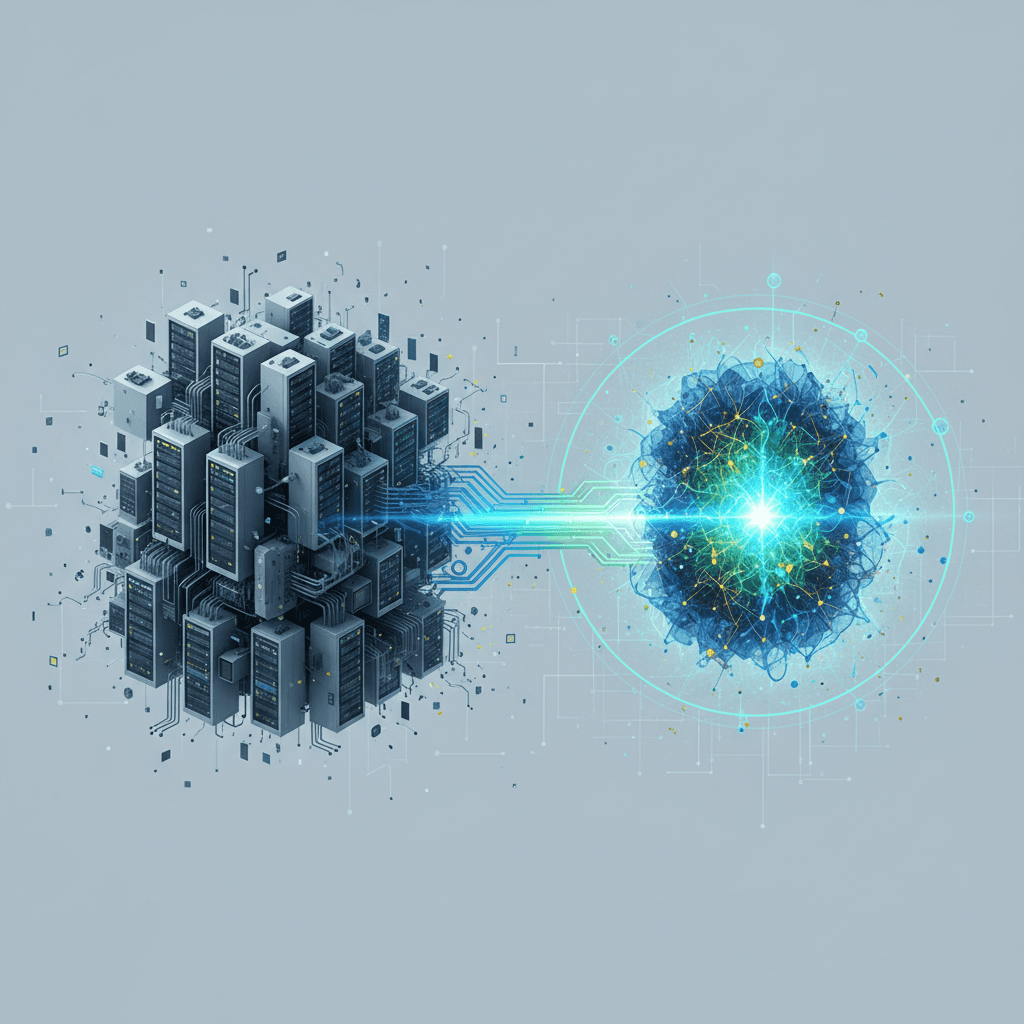Ilya Sutskever: AI Progress Needs Smarter Ideas, Not Just Bigger Models
Ilya Sutskever declares AI's scaling-up era over, advocating smarter, human-inspired research for the next superintelligence breakthroughs.
November 26, 2025

Ilya Sutskever, a key architect behind the models that ignited the generative AI boom, is now signaling a major inflection point for the industry, arguing that the era of achieving transformative progress simply by building ever-larger models is drawing to a close. The former OpenAI Chief Scientist, who now heads the research-focused startup Safe Superintelligence Inc. (SSI), contends that the path forward requires a fundamental shift back to research, chasing a new, more efficient learning paradigm. This perspective challenges the prevailing industry logic that has seen tech giants invest trillions of dollars in a global arms race for computing power, betting that scale alone is the primary driver of artificial intelligence advancement. Sutskever's assertion suggests the low-hanging fruit has been picked, and the next leap in AI capability will not come from more GPUs, but from newer, smarter ideas.
The core of Sutskever's argument rests on the diminishing returns and inherent limitations of the current scaling-up approach.[1][2][3] For several years, a prevailing belief known as the "scaling hypothesis" guided AI development, positing that increasing a model's size and the data it's trained on would predictably lead to greater capabilities.[4][5] This recipe proved incredibly effective, producing breakthroughs like OpenAI's GPT series.[3][6] However, this strategy is encountering significant headwinds.[7] A primary constraint is the finite nature of high-quality training data; as Sutskever notes, "We have but one internet," comparing this data pool to a non-renewable resource like fossil fuels that is rapidly being exhausted.[8][5] Furthermore, today's massive models exhibit a peculiar form of inconsistency Sutskever terms "jaggedness," where they can solve exceptionally difficult problems yet fail at simple, commonsense tasks, or fix one bug only to reintroduce another.[9][3] This indicates that while the models are powerful pattern-matchers, they lack a deeper, more robust understanding and an ability to generalize their knowledge as effectively as humans.[1][2] The industry is now at a point where simply adding more data and compute no longer guarantees the qualitative leaps seen between 2020 and 2025, pushing the field back into an "age of research" where new paradigms are required.[9]
In response to these limitations, Sutskever is now pursuing a new, more efficient learning model inspired by human cognition. He theorizes that humans learn far more effectively—a teenager, for instance, learns to drive in a fraction of the time and with vastly less data than an AI—because we possess an innate and robust "value function."[9][2] Sutskever suggests this function is deeply modulated by emotions, which are hardcoded by evolution and help us make decisions and assess experiences long before a final outcome is clear.[9][2][10] This internal guidance system allows for far greater sample efficiency and generalization.[2] The goal, therefore, is to imbue AI with a similar ability to learn and reason, moving beyond the "brute force" memorization of pre-training to a state of continuous learning and self-evaluation.[1] This shift represents a fundamental change in training philosophy, from creating static, pre-trained models to developing dynamic agents that continue to learn and adapt after deployment, much like a person gains skills and understanding through real-world experience.[1] While Sutskever remains guarded about the specific technical approaches he is exploring, he has made it clear that the future lies in discovering new methods, not just scaling existing ones.[9]
This vision is the driving force behind Safe Superintelligence Inc., the company Sutskever co-founded after his departure from OpenAI.[11][12] SSI is deliberately structured to escape the commercial pressures and product cycles that Sutskever believes can distract from the core mission of safely developing superintelligence.[12][13][14] With offices in Palo Alto and Tel Aviv, the company has attracted significant investment, reportedly reaching a valuation in the tens of billions despite having no immediate plans for a commercial product.[11][14][15] The company’s sole focus is on foundational research to solve the technical challenges of creating AI that is both vastly more capable and fundamentally safe.[16][17][12] This approach involves tackling safety and capabilities in tandem, aiming to ensure that safety measures always stay ahead of capability advancements, allowing the technology to "scale in peace."[16][13][18] By eschewing the industry's race to release products, SSI aims to pioneer the next paradigm of AI development, betting that true differentiation will come from methodological breakthroughs, not market share.[1]
The implications of this potential paradigm shift are profound for the entire AI industry. Sutskever's pivot to a research-first approach challenges the capital-intensive strategy currently dominating the field, which has funneled immense resources into computing infrastructure.[15] If he is correct, the competitive landscape could be reshaped, favoring labs that can innovate on algorithms and learning efficiency over those who simply possess the largest data centers.[1] This could democratize progress and shift the focus from engineering feats of scale to scientific discovery. Moreover, Sutskever's emphasis on building AI that cares about "sentient life" as a core alignment strategy introduces a new philosophical dimension to the AI safety debate.[9][15] As the industry grapples with the plateauing of current methods, the secretive work happening at SSI and the broader call for a return to fundamental research may well dictate the future trajectory of artificial intelligence, determining whether the next breakthroughs come from bigger machines or fundamentally better ideas.
Sources
[1]
[3]
[4]
[5]
[6]
[10]
[11]
[12]
[15]
[16]
[17]
[18]